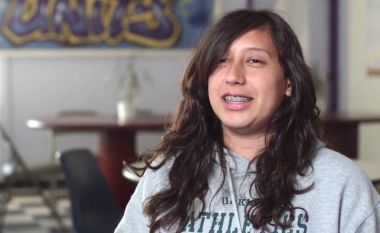Introduction
A class-action lawsuit filed against the state of California Thursday alleges that low-income students are deprived of an equal education because they are denied academic instruction time — yet assigned to excessive hours of “service” that include tasks like tidying up classrooms.
In addition to being assigned menial tasks at school, some pupils — even those below grade level in reading or other subjects — are simply sent home during free time “even though they are supposed to receiving a full day of education,” the suit filed in Alameda County Superior Court argues.
The 18 plaintiffs in the suit are Latino and black students at seven of the state’s most disadvantaged and underfunded schools, whose students are almost all ethnic minorities. The schools are located in Los Angeles County and the San Francisco Bay Area. The suit demands that the state of California — a defendant in the suit — monitor practices at the schools and intervene to make improvements.
“I think a lot of parents would be aghast if these were the conditions in their children’s schools,” said Kathryn Eidmann, Los Angeles-based staff attorney at Public Counsel, the nation’s largest pro bono law firm. Public Counsel is representing the plaintiffs, along with the American Civil Liberties Union of Southern California and other legal groups. Certain practices “slowly rob” students of real instructional time, lawyers said.
At-school “work” periods assigned to students are “classes in name only,” Eidmann said. “It’s being done to fill a hole.” Many teachers at the schools face tough challenges, Eidmann said, and staff turnover during the year and the use of multiple substitute teachers are common.
State officials said they had not yet had time to review the litigation, but also cited fresh efforts to improve the situation for low-income students.
The suit comes just as California lawmakers launch an initiative they hope will boost lagging graduation and academic proficiency among Latino and black students, in particular. Students registering lower rates of graduation and achievement are concentrated in schools stripped bare by years of state budget cuts and unequal local financial support.
The Golden State — long seen as a bellwether for national trends — is preparing to send millions of new state dollars to districts so they can use the funds, based on local jurisdictions’ own plan, to upgrade education for disadvantaged children.
The lawsuit filed Thursday alleges that at Fremont High School in Oakland, approximately one-third of seniors are assigned to so-called “Inside Work Experience” periods “instead of being placed in meaningful core or enrichment classes.” Students sort mail, run errands and perform other tasks. Juniors in the school of some 800 students are also assigned such work periods as well, the suit says.

Public Counsel Video
“When plaintiff Daisy Romo received her schedule at the beginning of the 2013-2014 school year,” according to the suit, “she was first assigned to an IWE (Inside Work Experience) instead of a science class.”
In L.A. County, at Compton High School, another “chronically low performing school” with a high rate of staff turnover, students are also allegedly assigned to “teaching assistant” periods during which kids help teachers with tasks or simply get “free periods.” Plaintiff Lucia Barajas, according to the suit, requested that a free period she was given be switched to a chemistry class she needed to pass to graduate.
“She was told, however, there was no space in any chemistry class,” the suit says.
Another Compton High student, Ignacia Barajas, was enrolled in a U.S. history class with more than 10 substitute teachers during the fall 2013 semester. “On some days,” according to the suit, “no substitute teacher showed up at all. The class waited outside the classroom door until they were sent to the library or another teacher’s classroom for the duration of the class period.”

Public Counsel Video
At Castlemont High School in Oakland, student plaintiff Lee Simmons was assigned “work experience” periods for two out of six periods in the day. That’s a 33 percent reduction in his instructional learning time during his senior year, according to the suit. In South Central Los Angeles, student Jessy Cruz of a school also called Fremont High School will graduate without enough credits to enter a four-year college. Yet he was assigned to two “service” periods at school and a period of “home” time, the suit also says.
The suit argues that academic instructional time the plaintiffs have been getting is “far below the norm” in public schools across the state, even though large numbers of these students are struggling to catch up with affluent peers.
Even if they are able to graduate, Eidmann said, they are deprived of courses affluent students are getting in their schools that prepare them for entry to college.
All the schools named in the suit — including one elementary school — are affected by neighborhood violence that lead to “lockdowns,” resulting in hours, even days of lost instructional time, lawyers for the students also argue. Some schools have few or no counselors or psychologists on staff to help thousands of students cope with disturbances that spark fear and absenteeism.
“For these students, consigned to a series of schools that perpetually fail to deliver education, hope fades and potential is crushed,” the suit argues. “The loss of educational opportunity does not occur in any dramatic, headline-making way,” but rather “over time, from the loss of learning time itself.”
Students receive “fewer minutes of learning per hour, fewer hours per week, and fewer weeks per year. As a result of this massive deprivation, an indefensibly high percentage of students at these schools fall far behind, give up, and drop out.”
State Superintendent of Public Instruction Tom Torlakson — who is named as a defendant — and State Board of Education President Michael Kirst issued a statement Thursday saying that they hadn’t had time to review specific claims in the suit. But the statement also said: “California’s education system is in the midst of a historic effort to shift authority over decision making to local school districts, empowering them to determine how best to meet the needs of the students they serve.”
The statement encouraged plaintiffs’ lawyers to work with local school districts.
Troy Flint, director of communications for the Oakland Unified School District, said, “We are not opposed to the lawsuit” filed by Public Counsel and the ACLU. Flint said the district is aware “there are serious problems” at Fremont and Castlemont high schools. He said that the district has been trying to initiate reforms at each school to ensure students are put into more appropriate classes.
The suit argues that practices to patch together classes for students at these underfunded and troubled schools are violating students’ right to educational opportunities, regardless of “wealth or race” under the California State Constitution.
In 2013, the Center for Public Integrity published reports on the expulsion of students in California’s Kern County — mostly for behavior that did not require expulsion — and their assignment to alternative schools so far away the students were put on home-study plans or dropped out. Most were the children of farmworkers who were unable to drive their children back and forth to schools 20 to 40 miles away. The students expected to school themselves at home four out of five days a week were counted as full-time enrolled students.
Read more in Education
Juvenile Justice
L.A. judge objects to school police getting millions reserved for struggling students
Other Calif. districts also propose using some of special state money for security
Juvenile Justice
State Senate leader reacts to Center report, urging counsel for truants
GOP leader involved in national movement to reform school discipline policies



Join the conversation
Show Comments